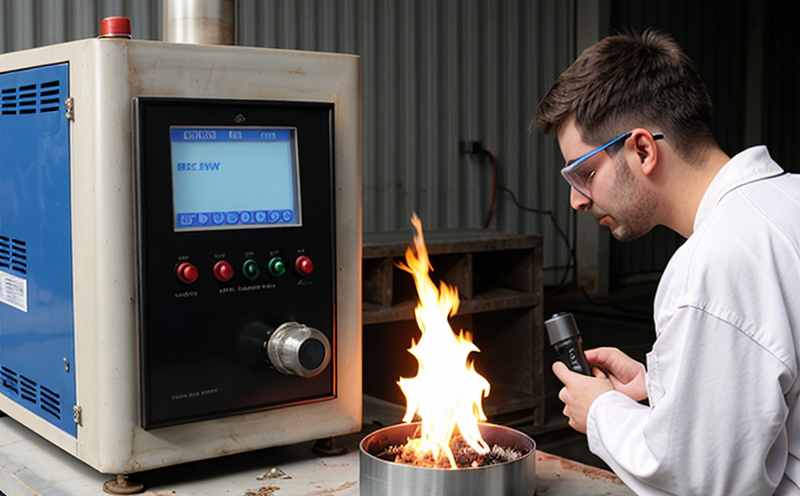EN 14511 Thermal Efficiency of Air Conditioners
The European Standard EN 14511:2007 specifies the method for determining the thermal efficiency and cooling capacity of air conditioners. This standard is crucial for manufacturers, quality managers, compliance officers, and R&D engineers as it ensures that air conditioning units meet energy efficiency requirements set by regulatory bodies.
Thermal efficiency testing under EN 14511 involves measuring the electrical power consumed by the air conditioner during continuous operation at different specified conditions. The test apparatus includes a calorimeter to measure heat release and an air flow meter for monitoring airflow rates. Specimens are typically commercial-grade air conditioners, which undergo rigorous testing in controlled laboratory environments.
The standard provides clear guidance on setting up the test facility and operating protocols. Specimen preparation involves ensuring that all components of the unit are in optimal working order before testing begins. This includes checking refrigerant levels, cleaning filters, and verifying connections to ensure accurate data collection.
Once prepared, the air conditioner is placed into a thermal chamber where it operates under defined conditions corresponding to typical usage scenarios such as ambient temperatures ranging from 25°C to 35°C. The test duration varies depending on the type of unit being evaluated but generally lasts for several hours to ensure stable readings.
Data collected during these tests includes both electrical power consumption and heat output, allowing calculation of thermal efficiency based on specified formulas provided in EN 14511. Compliance officers play a critical role in ensuring that all steps are followed correctly and accurately recorded throughout the process.
Quality managers benefit from this testing by gaining insight into how efficiently their products perform under various conditions, helping them make informed decisions about improvements needed to enhance product performance further. R&D engineers can use the results obtained from these tests as part of ongoing development efforts aimed at creating more efficient and effective air conditioning systems.
In summary, EN 14511 thermal efficiency testing provides essential information regarding energy consumption patterns for air conditioners across different operating conditions. It serves as a benchmark against which new designs can be compared, ensuring continuous improvement in terms of both performance and sustainability.
Why It Matters
The importance of EN 14511 thermal efficiency testing cannot be overstated given today’s increasing focus on environmental responsibility. By accurately measuring the amount of energy required to achieve desired cooling effects, manufacturers can optimize their product offerings to reduce unnecessary power consumption and lower operational costs.
For quality managers and compliance officers, adhering to this standard ensures that companies remain compliant with local regulations while also positioning themselves favorably in competitive markets. In an era where consumer awareness about eco-friendly practices continues to grow, having certified products can significantly enhance brand reputation and market share.
R&D engineers leverage EN 14511 data as part of their innovation processes, identifying areas for improvement in existing designs or exploring entirely new concepts that could lead to breakthrough advancements. Additionally, this testing helps procurement teams select suppliers whose offerings align closely with sustainability goals set forth by corporate policy frameworks.
Ultimately, compliance with EN 14511 not only supports green initiatives but also contributes positively towards reducing greenhouse gas emissions associated with HVAC systems worldwide. As environmental concerns continue to shape industry trends, staying ahead of these developments becomes increasingly important for maintaining relevance and success in the marketplace.
Applied Standards
| Standard Number | Title | Description |
|---|---|---|
| EN 14511:2007 | Determination of the thermal efficiency and cooling capacity of air conditioners | This European Standard specifies the method for determining the thermal efficiency and cooling capacity of air conditioners. It includes detailed instructions on setting up test facilities, specimen preparation, operational procedures, data collection methods, and calculation formulas. |
The standard is widely recognized as one of the most comprehensive resources available for conducting accurate and consistent thermal efficiency tests on air conditioners. Its thoroughness ensures that results are reliable across different laboratories worldwide, facilitating comparability between various brands and models.
While EN 14511 focuses primarily on residential units, it can also be adapted for use with commercial-grade equipment by adjusting certain parameters such as test durations or environmental conditions. This flexibility allows the standard to remain relevant even as market demands evolve over time.
Competitive Advantage and Market Impact
Compliance with EN 14511 offers numerous competitive advantages for manufacturers operating within both domestic and international markets. Firstly, it demonstrates a commitment to producing high-quality products that meet stringent global standards. Secondly, obtaining certification under this standard enhances credibility among consumers who increasingly prioritize environmental factors when making purchasing decisions.
From an operational perspective, adhering to EN 14511 helps streamline internal processes by providing clear guidelines for testing procedures and data interpretation. This consistency reduces variability in outcomes and minimizes potential errors during quality assurance audits or customer complaints.
In terms of long-term market impact, manufacturers that invest in robust thermal efficiency testing programs positioned themselves well to capitalize on future opportunities such as emerging green building codes or incentives offered by governments promoting sustainable practices.





